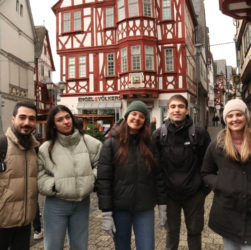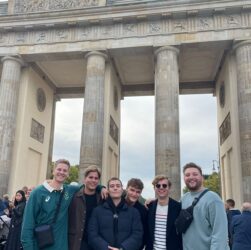Eryn Treherne BCom International Business Semester Exchange in the Second Semester, 2023 at Frankfurt School of Finance and Management …


Eryn Treherne BCom International Business Semester Exchange in the Second Semester, 2023 at Frankfurt School of Finance and Management …

Christiaan de Wet LLB Student Semester Exchange in the Second Semester, 2022 at Bucerius Law School Pre-departure: The pre-departure preparations …

In December 2017, which was the end of my third year of my bachelor’s degree program in Industrial Engineering, I …